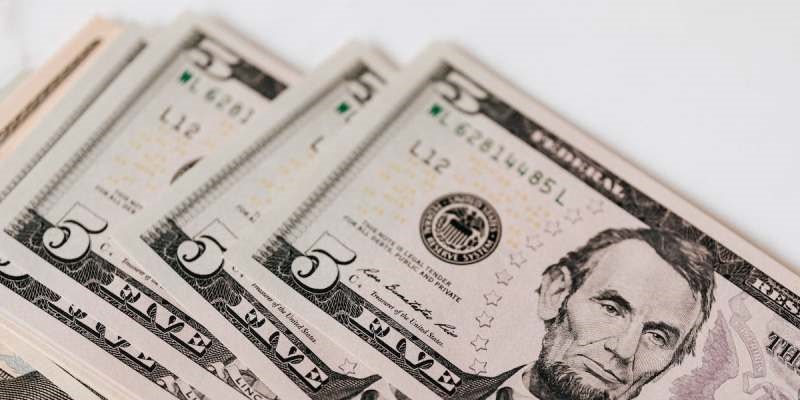Revenue from the sale of personal investment property that agents organize for one year or less isn’t new. They charge this revenue to the temporary gain tax rate. The short term gains tax rate on these gains is the same as your tax rate or regular income. The difference between the cost base of capital assets, the purchase price, and the observed sale price is the amount due to quick profit tax.
There may be an essential loss if the purchase price is more than the sale price in certain instances. You can contrast the key economic terms like profit and rate of return with the idea of capital gain tax on short term.
So, if you are still confused about short term gains tax, let's discuss it in this article.
Understanding Short Term Gains Tax
You can consider the profits from the sale of real estate or personal property as temporary gains. You cannot consider a short-term gain will standby any loss in the short term. The maximum amount of allowed capital loss is $3,000, and you don’t include whatever losses you suffer by one taxpayer. Losses incurred by additional taxpayers are $15.00.
The difference between the sale price and the basis of capital assets is the amount of short term gains tax. The short term gain tax rate is the top taxpayer of the marginal tax rate. The amount of regular income is 10% to 37%, depending upon the investor's annual income. Gains and losses in the near future are not overlapping.
The highest marginal tax rate or regular revenue tax is known as the immediate short term gains tax rate. This is which is different from 10% to 37%. The capital gain tax on short term is treated less favorably tax-wise. This is because it is compared with assets held for a minimum of one year.
Short-term capital gains taxes impact an extensive variety of assets, including those purchased for personal use and investments. Capital gain tax is paid only when the selling price rises above the original purchase price.
Formula and Calculation
Two independent bases, such as a purchase basis and condition basis of an asset by the marginal tax rate unique to the taxpayer. You can utilize them for determining short term gains tax.

Tax Rate = (DB-AB) × Short-Term Capital Gain, which included:
Disposition Basis (DB)
Acquisition Basis (AB)
Acquisition Basis
The primary advantage for the taxpayer is that a heavy obtaining basis lowers the disposal's deductible base. The basis for the development identifies the assets as a cost to you. You can address this by sales taxes and can pay for it with cash, debit, or other property and services.
Disposition Basis
The value of money you receive in exchange for supplying quality service provides a foundation for the asset sale. As an alternative, you may exchange an asset for a service or asset without a market. The value of attitudes is typically the cost of the assets, so the total amount paid by the buyer might vary from the seller's basis.
The Exclusions from Straightaway Capital Gains
According to the type of asset, some received favorable or unfavorable short-term capital gain treatment. Some taxpayers benefit from these rules, while others have a more significant tax burden minimized.
Stock for Small Businesses
Stock from small businesses that qualify may be excluded if it was purchased after a certain date and kept for a minimum of five years. Consequently, the company's gross assets cannot exceed a million for short term gains tax.
Collectibles
There is no special capital gain tax on immediate gains for items to collect, even though IRs tax them at a higher rate than the typical capital gain rate. Most typically, you base these collectibles upon the taxpayer's ordinary income tax rates.
Home Sales

If the individual has lived in their home for at least five years before selling it, they may be able to get favorable capital gain treatment. Due to the duration of the exemption prerequisite, it doesn’t cover the immediate capital gains by the exemption.
Real Estate Investment
The statement may be part of the capital gain tax on immediate investments in real estate. It tells us that the amount of an overview is frequently taxed at a maximum rate of 25%. This is then compared with a non-recapture amount, which they tax at a capital gain tax rate.
A short-term capital gain tax is not due on any income received by the shareholder from an investment that they organize in an individual pension fund (IRA). You can add the total gain to the investor's yearly earnings. You might, therefore, have to pay a higher tax on the short-term gain tax on the money you've invested.
Short Term Capital Gains and Wash Sales
The wash sale rule is an Internal Revenue Service (IRS) to prevent taxpayers from taking tax deductions for a loss on security sold in a wash sale. This rule defines a wash sale as one that occurs when an individual sells or trades security at a loss end within 30 days before or after this sale. It also occurs when company control buys substantially similar security within that period.
Investors in short-term trading can, unfortunately, involve themselves with a higher risk of being in a wash sale. This transaction is one where an individual acquires identical security 30 days after the sale of a declining investment.
Wash sales are also directly related to short term capital gain tax. Consider the example where an investor buys one share of stock for $20 and sells the share of stock for $18 after one week. The original loss is $2. You can add this loss to the new cost basis of the stock's short-term capital gain on the sale of held stock.
Conclusion
Capital gains tax, in the short term, is an essential aspect of taxation that investors must consider while making financial decisions. Understanding the holding period of assets tax rates can help investor optimize their tax ability and plan their investment.




